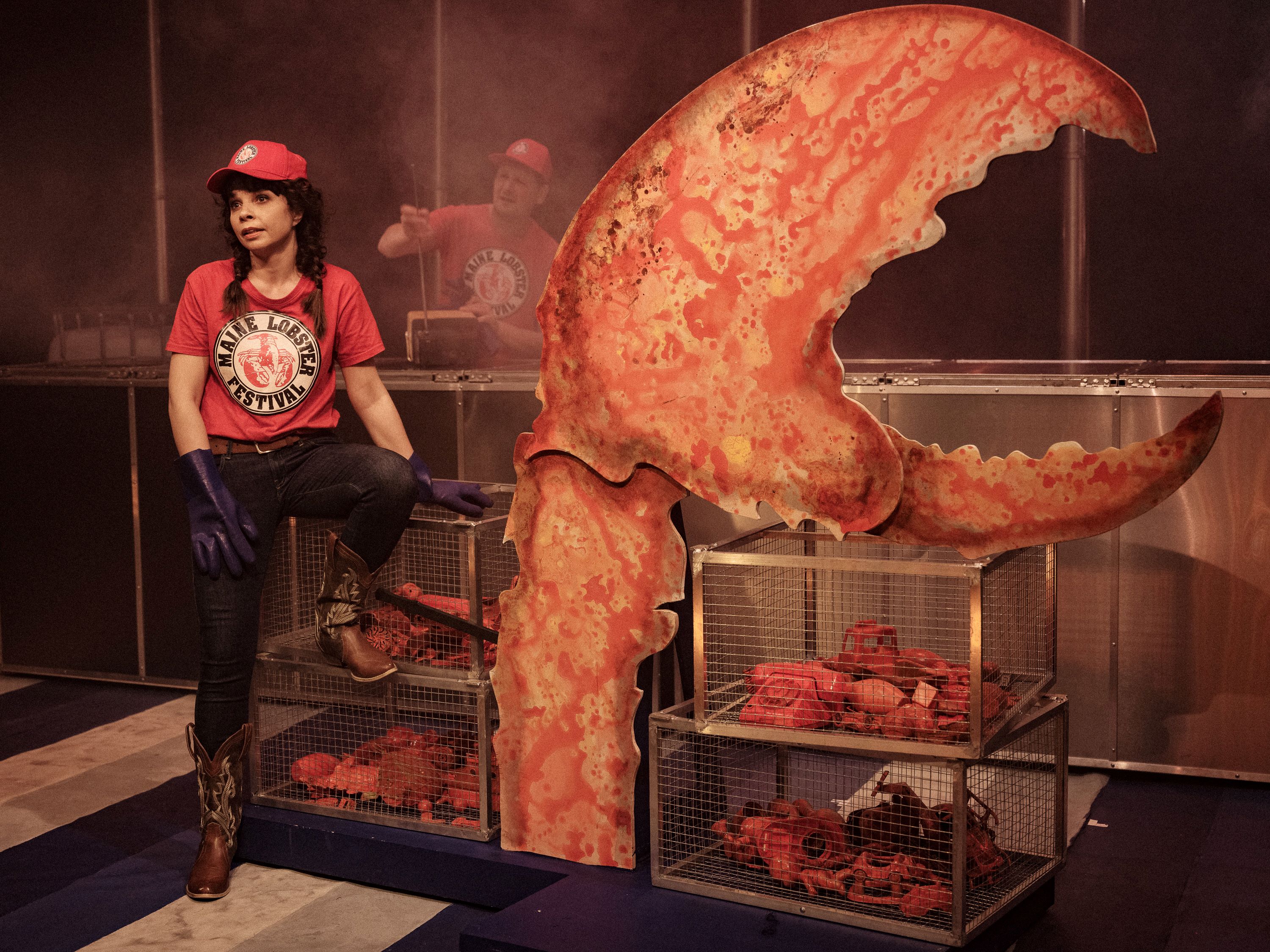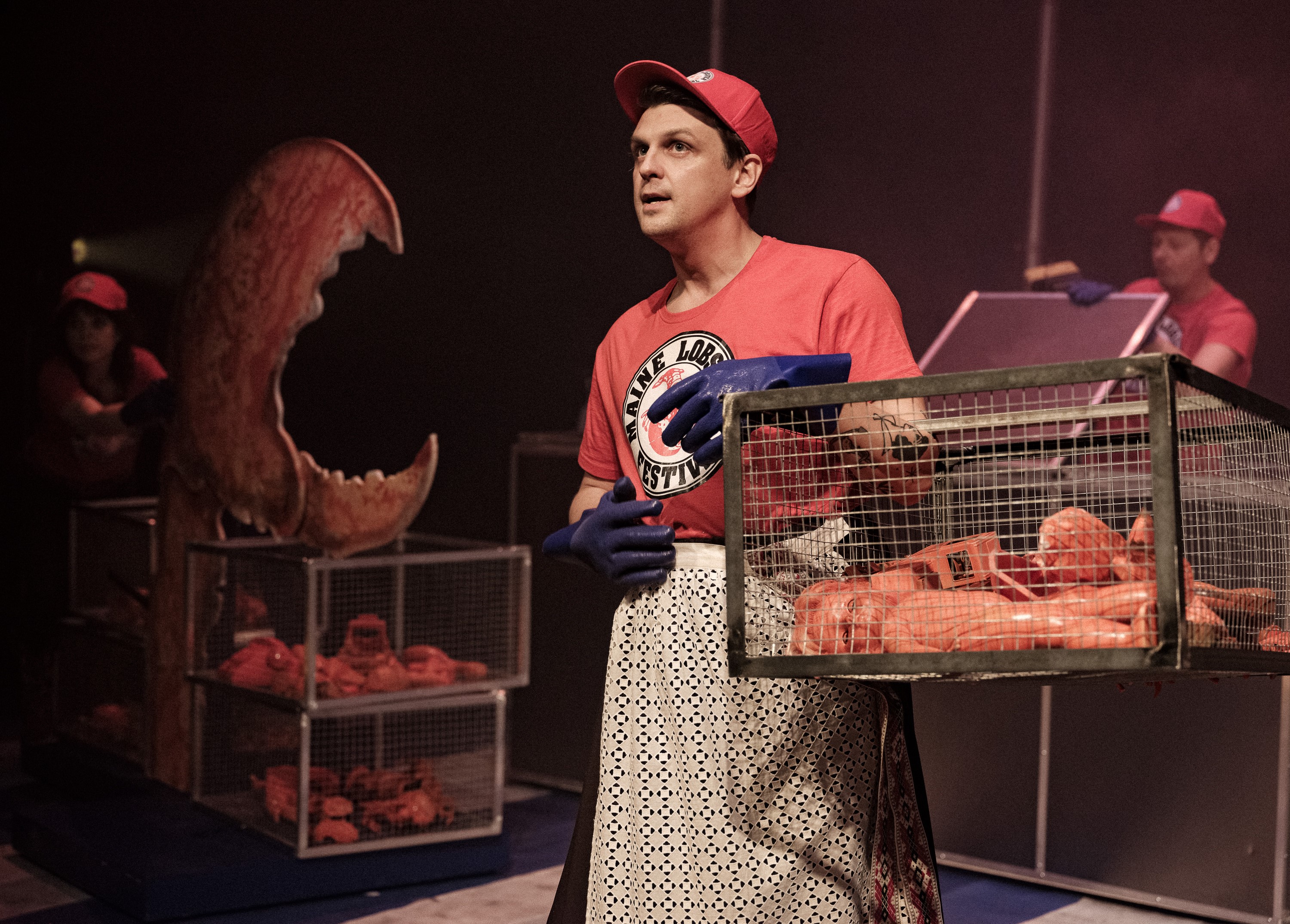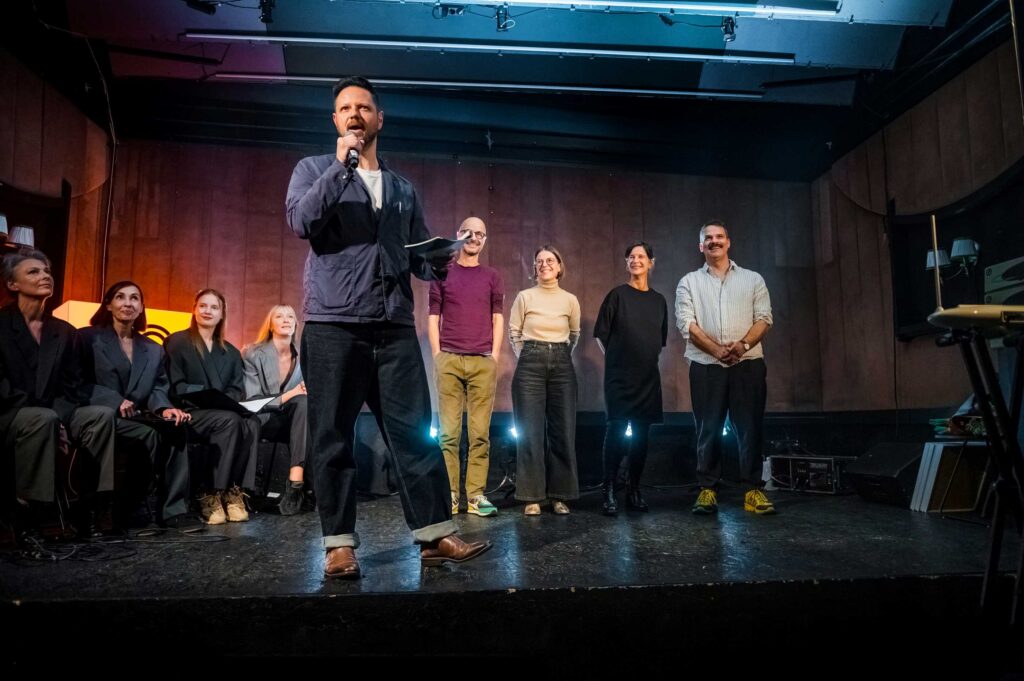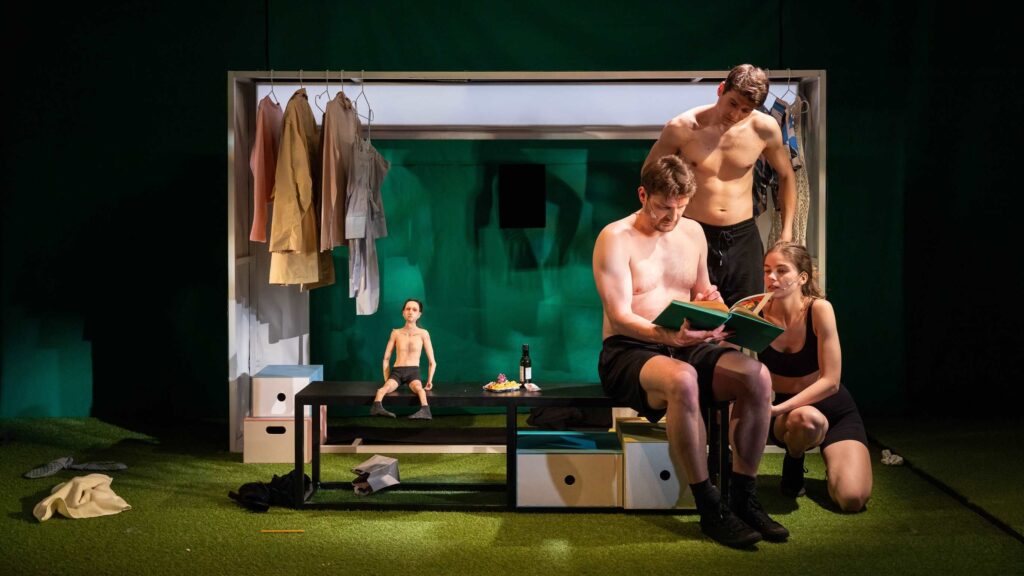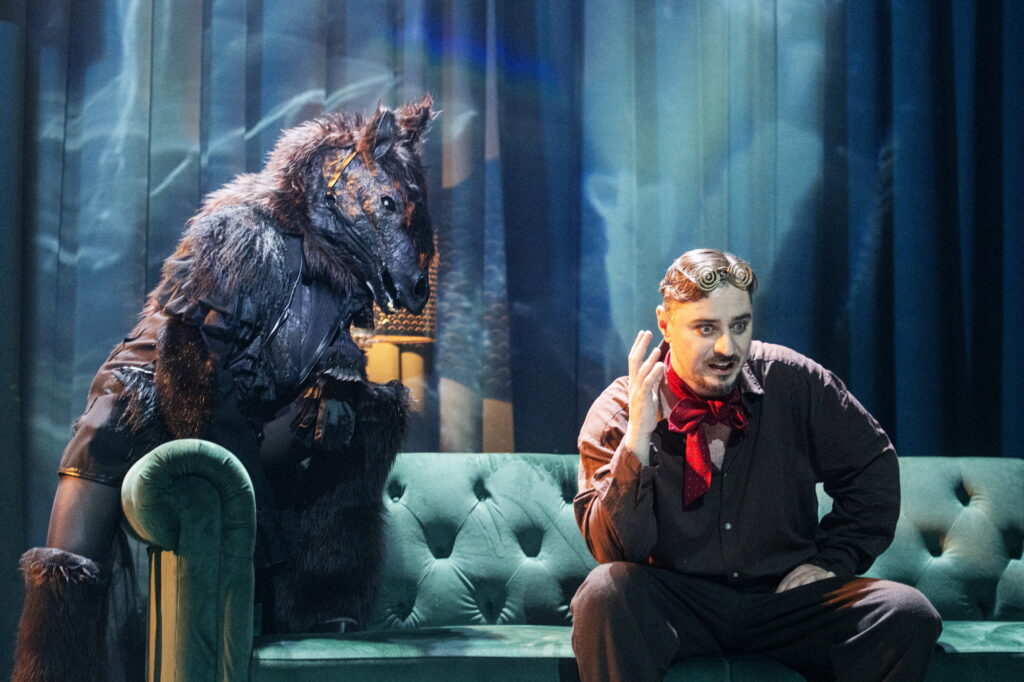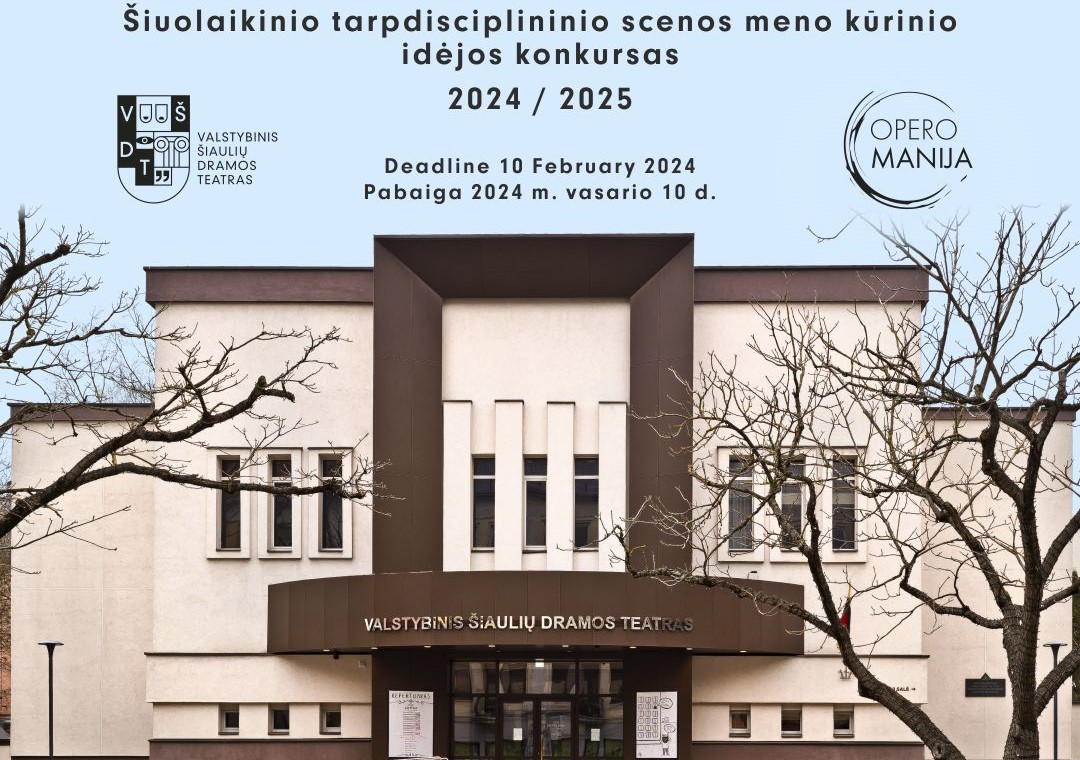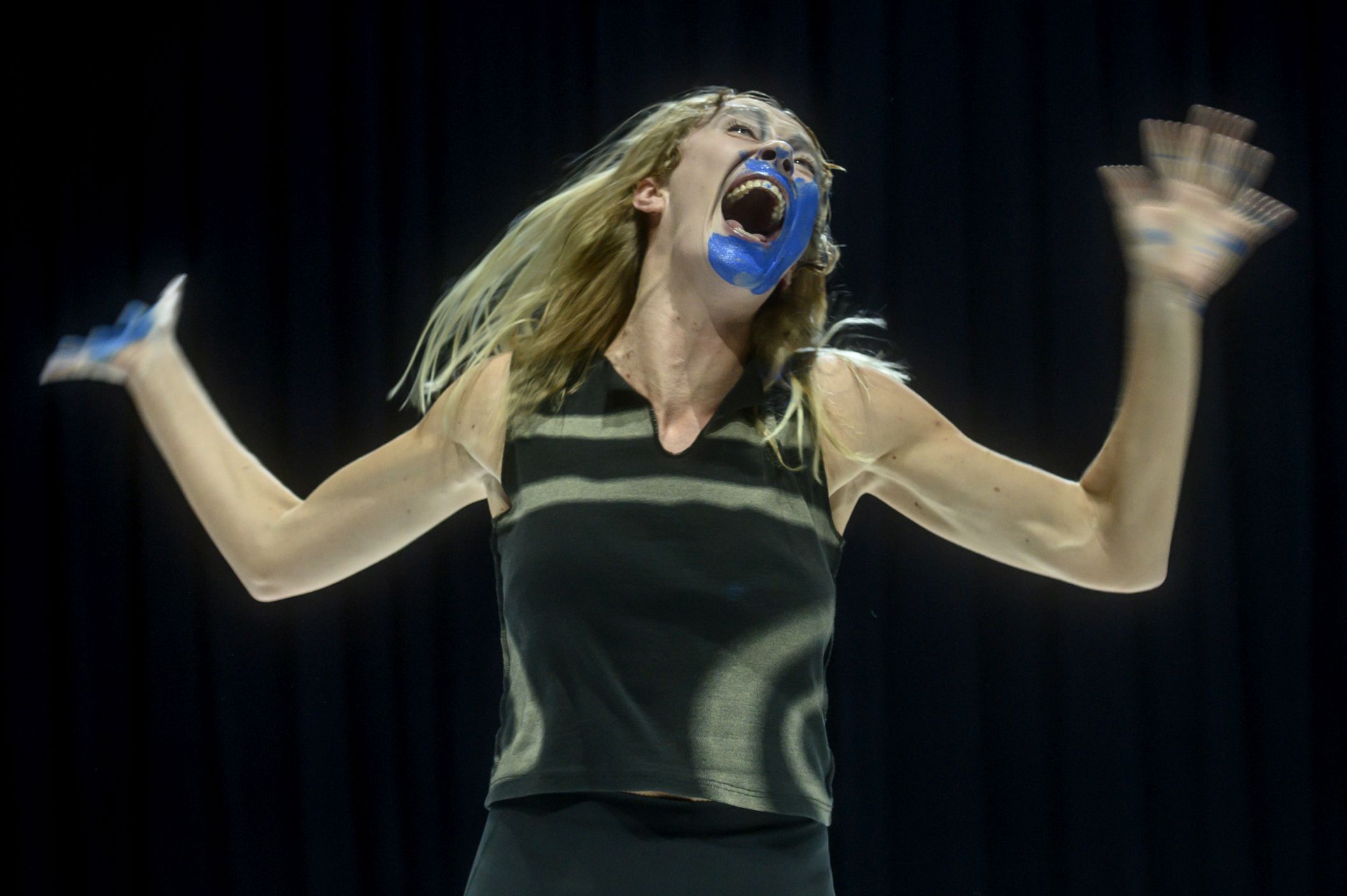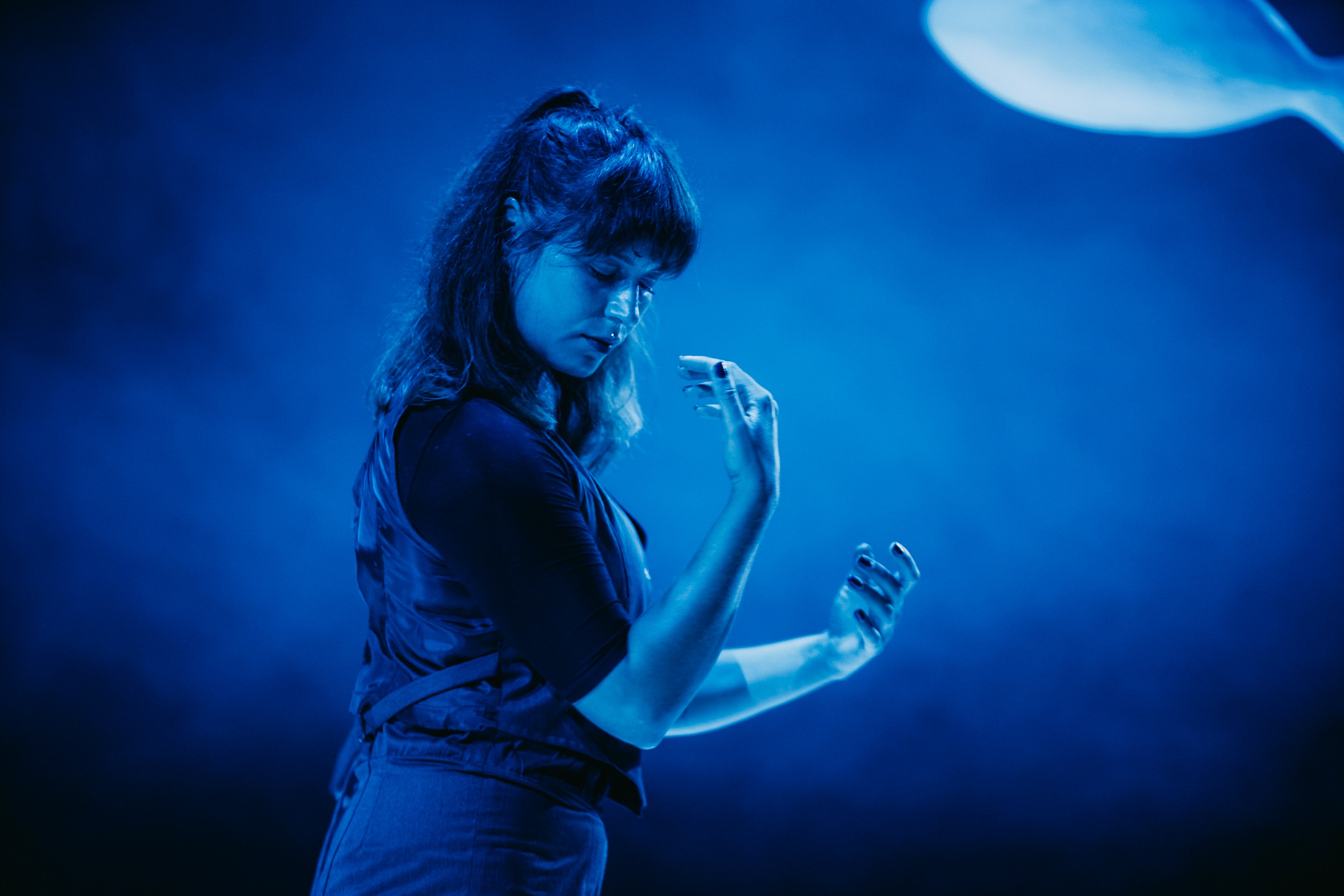The theatre director Yana Ross was born in Russia, grew up in Latvia, and spent a significant amount of time in New York. However, Lithuanians consider her one of their own directors. She created her first piece in Lithuania (Bambiland, based on Elfriede Jelinek) at the Lithuanian National Drama Theatre in 2007 (together with the Oskaras Koršunovas Theatre), and since then she has staged nine performances here. Of these shows, the most appreciated were Our Class (2013) and Tales from the Vienna Woods (2019). Both won her a “Golden Cross of the Stage”, making her the first woman to be awarded as director of the year (and the first to be awarded twice).
However, while she is recognised as a Lithuanian director, Ross has also been working in various state theatres in northern Europe, has spent a few years at Zürich's Schauspielhaus as part of the artistic director's team, and is currently collaborating with the Berliner Ensemble. In Switzerland she started her theatrical journey (after staging all the plays by Anton Chekhov) with creative works by David Foster Wallace, who seems to be her new favourite author. First she staged 22 Types of Loneliness (based on Wallace) at Zürich's Schauspielhaus in 2021. At the beginning of 2023, she enriched the dramaturgy of Ivanov (based on Chekhov) at the Berliner Ensemble with some of Wallace's texts. After almost a year, in October 2023, she produced Consider the Lobster, based on Wallace's famous essay, at the Lithuanian National Drama Theatre. This was her return to the country's stage after a four-year break.
Consider the Lobster is a one-and-a-half-hour show, basically an essay, like Wallace's text itself. Four actors (Elzė Gudavičiūtė, Martynas Nedzinskas, Salvijus Trepulis and Jūratė Vilūnaitė) come on to the stage dancing Lithuanian folk dances and wearing folk costumes: long linen skirts and wreaths with long ribbons. The later change of costume becomes a change of character, and even a change of periods that the characters live through. Soon the actors take off their Lithuanian attributes and stand in front of the audience wearing jeans, baseball caps and red shirts, representing the logo of their work, the Maine Lobster Festival. Red, white and blue, the colours of the US flag, visually dominate on the stage.
Consider the Lobster is a collection of scenes, and is based on the essay as an inspiration and a background for the content. As usual, Ross scrutinises the written material, enriches it with the actors' lines, and inserts a lot of cultural and literary intertexts. The audience is basically watching a festival with all its attributes, talking to a taxi driver about the meaning of the festival, enjoying various kinds of entertainment, like a beauty contest or a darts match, and, of course, the main activities, cooking lobster and eating it. All this creates the concept: people attend the Maine Lobster Festival, where they gradually open up as human beings and consumers. In a creative work of this kind, the audience sees many layers of themes. The most obvious is the theme of making animals suffer for gastronomic reasons: how do we deal with the fact that to make lobsters taste better we boil them while they're still alive? Later, it gets deeper: how can we be so sensitive about the Holocaust, while at the same time we make a daily Auschwitz for animals? And even deeper: how do we normalize suffering, and make it or perceive it as a regular part of our daily lives?
These create the basic plotline, although the show includes much more. A violent relationship with parents and its consequences, fickle partnerships, postpartum depression, general depression and its 'creative' influence, society's requirements for different genders etc. All these are revealed in various scenes, such as a beauty contest without certain requirements, or eating scenes where instead of boiled lobster the actors fish for red baby dolls in a pot, or where an actress introduces herself as Wallace and talks about the boredom of mass culture and what literature can do for humanity, and even where the characters talk about themselves and present very different behaviours of parents who apparently did not love their children. How is this connected to boiling lobsters? It is how the perception of suffering starts forming inside people's heads.
Ross always puts many layers of meaning into her shows, which let the audience see how humanity or fellow citizens live and behave. This leads to self-reflection, if you are facing something you are already working on. Otherwise, if you do not agree with the author, the show might look too categorical, in the sense of saying what kind of behaviour is right and what is not. This makes Consider the Lobster one of the less affective creative works, because a lot of ideas are presented from a very clear position. The reason might be the lack of a dramaturg: Ross usually works with strong dramaturgs who help make the ideas less direct and more open to interpretation.
Consider the Lobster was reviewed broadly by critics, whose reactions were ambiguous. Those who have been following Ross' work for many years and in different countries appreciated the première, and shared a lot of meaningful ideas in their articles, mostly connected with a knowledge of her values and her creative direction, as well the writer's personal values and interests. They emphasised some specific scenes. For example, one where an actress asks the audience to put her in handcuffs, gets into a tub of water, and splashes about in it for 40 seconds: that is how long it takes a lobster to die in boiling water. Or one where an actress sits barely moving in a wheelchair, while another, who represents her son, tells the story of a mother who hated him but became more loving the worse he behaved.
However, while some critics quoted these scenes as the most affective ones, others used terms like 'nothing special'. One even questioned whether Consider the Lobster was relevant to Lithuanians, who do not live a life of luxury expressed by eating lobster. 'What can the show say to these people?' asked the critic. 'Nothing, except for making them feel frustrated and opposed to veganism.'
Furthermore, there were quite a few unofficial remarks that Ross' work was shallow compared to the original texts, while one critic wrote about her frustration that the director, as a responsible creator and one who has been analyzing Wallace's writing deeply for a long time, kept Consider the Lobster on the very surface regarding its content. The author even compared the show to one in Zürich which Lithuanians could have experienced through a review by a fellow critic. 'The intellectual and emotional breadth and depth that a critic conveyed in her review of 22 Types of Loneliness makes me ask why Zürich got such an impressive and powerful version of Wallace and we got a reduced one. Is it a matter of confidence in the audience, or a question of resources?'
Comparing the financial situation in the Lithuanian and Swiss cultural fields, the question of resources is definitely appropriate. However, Consider the Lobster was one of the most impressive premières at the beginning of the 2023-2024 Lithuanian theatre season. The huge differences in its critical evaluation remind us that her work is not easy (in both form and content), and that she might use the names of writers, but she does not necessarily stage what was written by them: society and communities come first.
-----
Publikaciją finansuoja Lietuvos kultūros taryba

